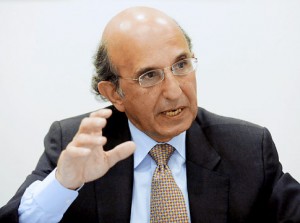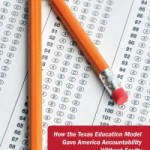[fusion_builder_container hundred_percent=”yes” overflow=”visible”][fusion_builder_row][fusion_builder_column type=”1_1″ background_position=”left top” background_color=”” border_size=”” border_color=”” border_style=”solid” spacing=”yes” background_image=”” background_repeat=”no-repeat” padding=”” margin_top=”0px” margin_bottom=”0px” class=”” id=”” animation_type=”” animation_speed=”0.3″ animation_direction=”left” hide_on_mobile=”no” center_content=”no” min_height=”none”]
Joel Klein, who spent ten years heading education in New York, offered advice back in December about how to “fix education.” One of his suggestions centered on teacher preparation and retention. Klein addressed the frightening statistic about how many teachers leave the field before they hit their fifth year of teaching. His concerns are that colleges are not adequately preparing future teachers, society is not treating teaching like a profession, and districts are not implementing technological advances.
Teacher Prep Programs
Many of my colleagues would agree with Klein’s assessment of college training programs inadequately preparing educators. That is not to say that they do not try. One problem is that teachers do not spend enough time in courses for content knowledge or classroom management. Upon further reflection, this makes sense. Not only are teachers expected to become “experts” in the content that they teach, but they must also acquire unique managerial skills in working with children and teens. (Contrary to what some believe, business management is not the same thing.) Is it possible to cram all the necessary courses and training into a four-year program? Considering that the first two years of college are usually spent in generalized courses, I have to think that Klein makes a valid point; teachers could use more courses in content knowledge and pedagogy.
On the other hand, who has time to spend more than four years on a degree? While it is true that many of us in education will acquire a master’s or doctorate degree, it is also true that most of us have already entered the field before doing so. If Klein and others of like-mind are going to insist that teachers spend more time training, then a compromise must be reached. For one, deeper discounts for education majors would benefit cash-strapped college students. Another negotiation would be to enter teachers into paying apprenticeships so that they could earn experience and pay in the field while finishing their degree. As it stands now, most hopeful teachers spend their last year of college student-teaching. That means that most of their content knowledge and education-specific courses would have been obtained in the first three years, along with the generalized core courses. I certainly can see the appeal of restructuring this program so that candidates get more time in relevant courses, but one or two more years would have to be added to the program so that candidates can still have their student-teaching experience. Again, turning student-teaching into a paid apprenticeship could ease the burden of college students having to study longer than their peers.
Society Treating Teachers like Professionals
To begin, teachers should use discretion in how we carry ourselves. If we act like professionals, then people may start to believe we are professionals. If you are a teacher who proudly proclaims that you entered the profession for those nice summer vacations, then you need to stop and reconsider your career choices. (For the record, I have only met one person who ever stated this while I was still studying in college. I do not know if she still teaches; I doubt it.) When people in your circles make ignorant comments about your career, you have the chance to clarify their misconceptions; just do so politely. Invite an outsider into your room so that that person can report back to non-educators what it is really like. In a nutshell, we as teachers must educate the general public about what it is really like to be a teacher. (FTR, here at theeducatorsroom.com, many of us writers are doing a fine job of that.)
Of course, it is not up to teachers alone to solve this problem. When more politicians and leaders speak of teachers respectfully and see them as equal professionals, then society will experience a trickle-down effect and hopefully see us that way, too.
Improving Technology
For most districts, funding dictates how much technology can be updated and added to school systems. Some districts form committees to apply for grants while others pay rental fees for technology. One district in Tennessee signed a contract in which they pay a monthly flat rate for software that automatically upgrades when available. Other schools require families to purchase an iPad, Kindle, or similar device that their students will use throughout their school career for e-books and the like. The more companies try to work with districts, the more options available to our students.
As I sat here and typed this article, I realized how easier it is to give an opinion than it is implement it. None of these suggestions touched on burning topics in education, such as student poverty or an overflow of testing. The flaws in education cannot be addressed in one sweep; it is a complex matter that requires a multitude of solutions.[/fusion_builder_column][/fusion_builder_row][/fusion_builder_container]




Thank you for setting up this site. I opened this page because I have arrived at the conclusion that I need to get out of education. I came here hoping to learn of some career move I can make.
No one is listening to the valid concerns of those of us who have been doing this for decades. I am a rare individual. I have taught for 32 years. I am tired, tired, tired of having more and more put on my plate with nothing being taken off. Furthermore, I see no end in sight of the number crunching, micro-managing administrators who have removed themselves from the front lines and are now erroneously convincing themselves that making up more tasks for us to do is the way to improve education. Our system doesn’t work because we are expected to provide services for the full spectrum of humanity. We don’t see regular education students, we see everything that society can conceive of and produce. We just don’t receive the necessary support and intelligent decision making about testing for us to get the future leaders prepared to do their jobs. Cookie cutter attempts to force everyone into the same mold has not and never will work. Going to court and cranking out more laws that favor various individuals or small groups just overrides the needs of the general population. The tail is wagging the dog. When will these children (general education students) receive the services they deserve if we keep forcing the general educator to ignore them in favor of giving special needs students all or most of their time, energy, and resources? When will America recognize that not everyone wants or should go to college? Why aren’t we preparing people with skills for careers that don’t need a degree? Piling everyone into one classroom looks and feels a lot like the one-room school house days. The result is that no one gets what they really need.